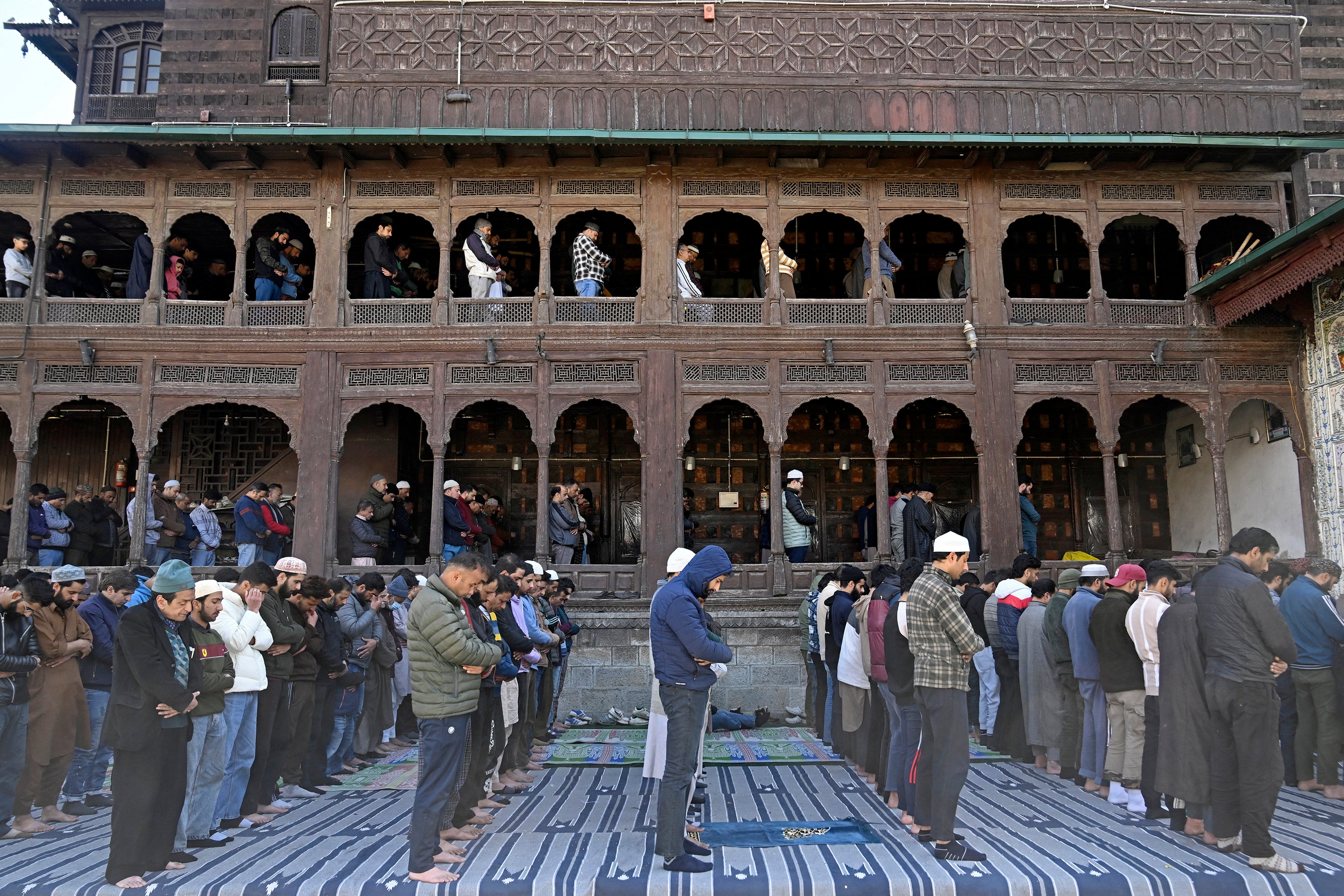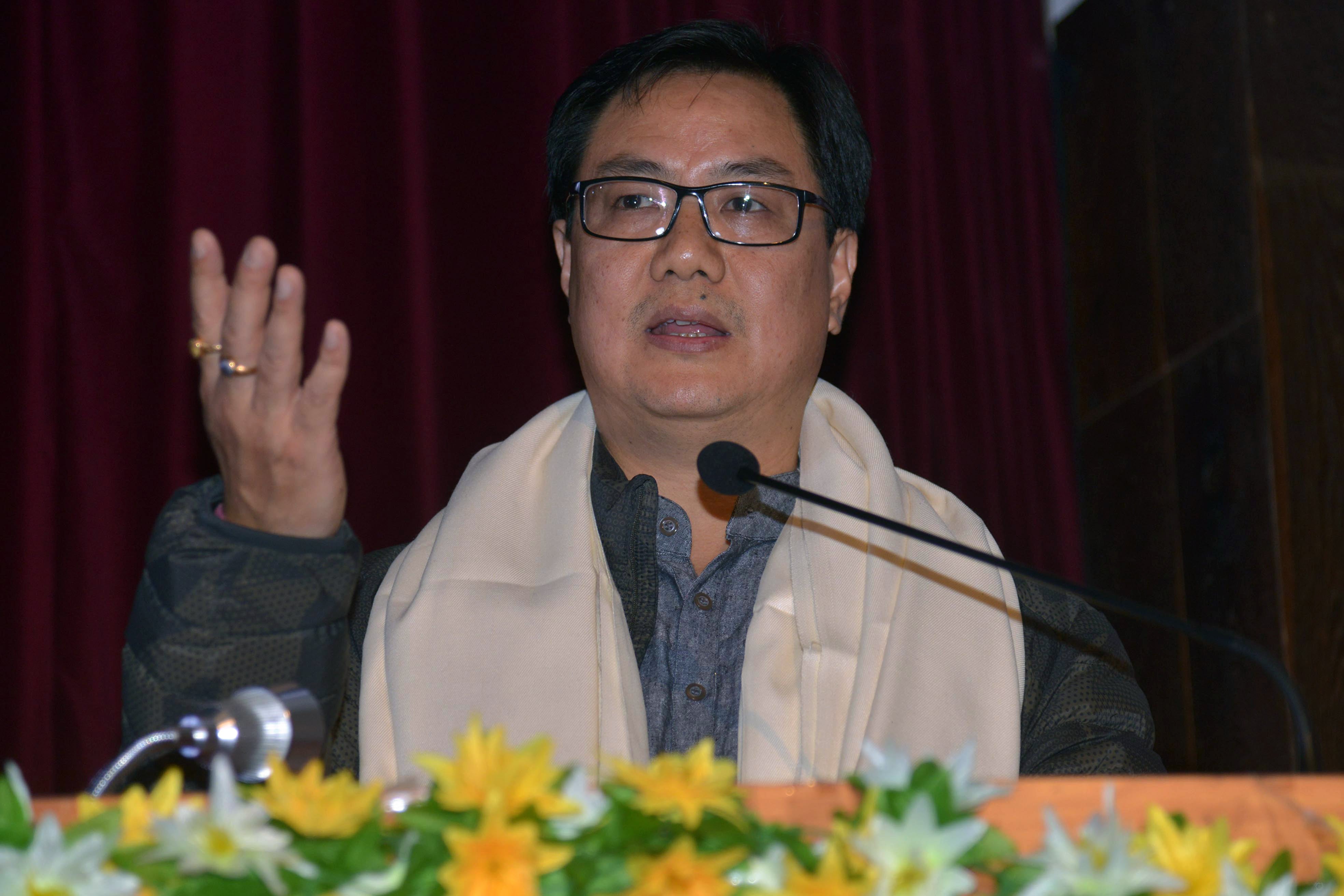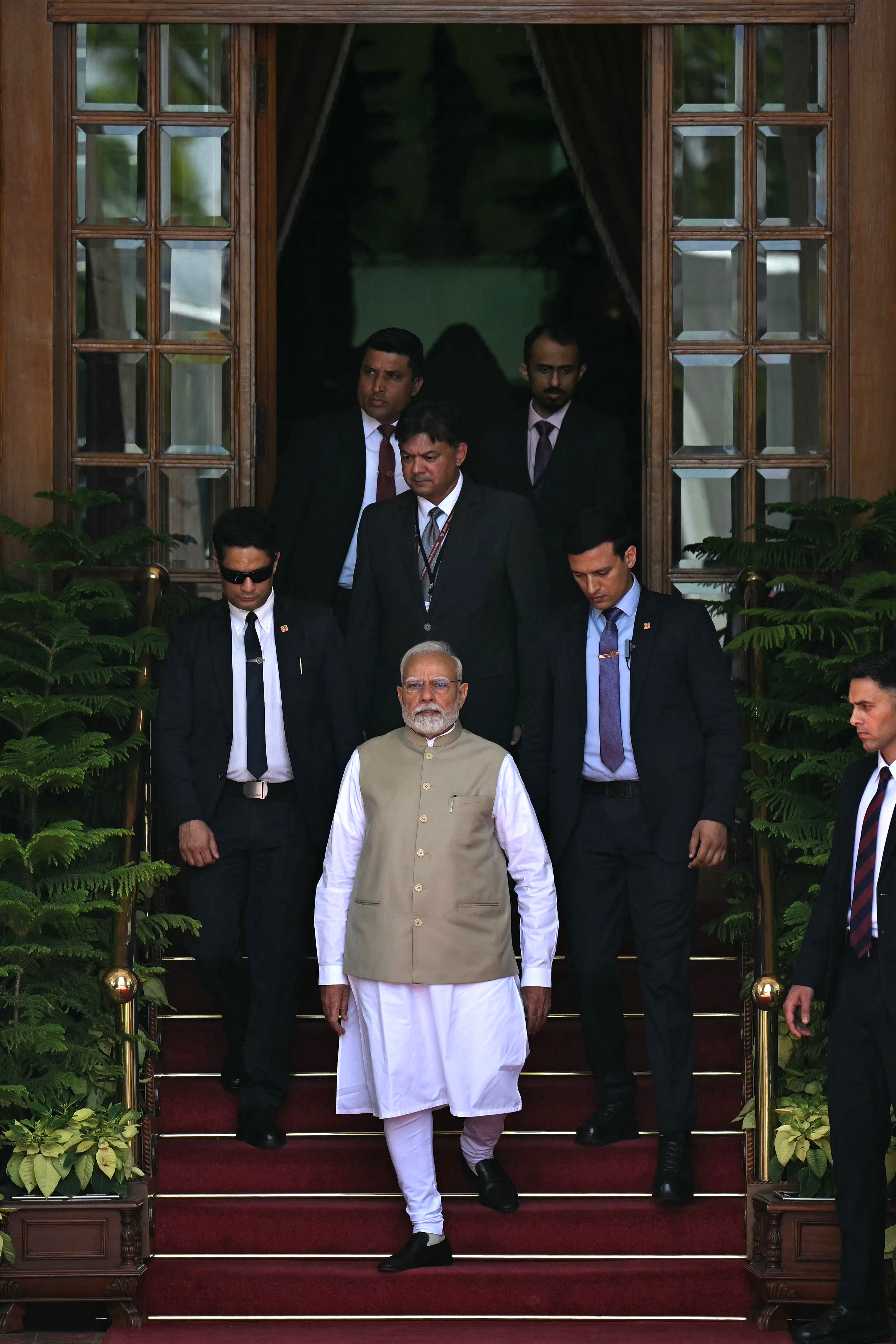The Indian parliament has passed a bill introducing sweeping changes to laws governing Islamic charitable assets, triggering sharp opposition and accusations of state overreach.
The Narendra Modi administration says the reforms to the system of Waqf properties – religious and charitable assets governed under Islamic law – will address bureaucratic gaps, clarify ownership disputes, improve transparency and reduce encroachments on public land. Critics, however, say it is a thinly-veiled attempt to seize Muslim-controlled properties, weaken the autonomy of the country’s 200 million-strong Muslim minority and increase state oversight of religious assets.
Waqf refers to property donated for religious or charitable purposes under Islamic law. Once declared Waqf, ownership is transferred from an individual to Allah, and the asset becomes inalienable, managed by a trustee for the benefit of the community.
The Waqf (Amendment) Bill 2024 was passed on Thursday after a 12-hour debate in the lower house with 288 votes in favour and 232 against, and later sailed through the upper house with 128 ayes and 95 nays.
Modi called its passage a “watershed moment in our collective quest for socio-economic justice, transparency and inclusive growth”.
The practice of Waqf has its roots in Islamic traditions and was formalised during British rule via the Religious Endowments Act of 1863, which allowed religious communities to manage their properties. The current framework stems from the Waqf Act of 1995, which established central and state Waqf Boards to regulate and protect these assets, including mosques, madrasas, graveyards, hospitals, and schools. Many such properties are centuries old and of cultural and historical significance.
“This will particularly help those who have long remained on the margins,” Modi posted on X (formerly Twitter).
But opposition leaders slammed the bill as an attack on democratic values and religious freedoms.
One of the most contentious changes is the removal of the “Waqf by user” clause. This provision currently allows properties to be deemed Waqf based on their long-standing religious use, even in the absence of formal documentation – a critical safeguard for older properties predating modern records.
“Waqf by user means a property becomes Waqf through long-term possession and use,” explained opposition MP Asaduddin Owaisi. “Properties from centuries ago were rarely documented, yet they’ve served religious purposes for generations.”

The current act allows Waqf creation through three routes: formal declaration, endowment after the end of a succession line, or by recognition of religious use over time. The new bill restricts this: only Muslims who’ve practiced for at least five years and own the property can declare it Waqf. The removal of the “user” provision disqualifies undocumented properties from Waqf status.
The bill transfers ownership determination to a state-appointed collector if the land is disputed – removing this power from the Waqf Board itself.
“The government says disputed land will now be assumed to be government property, and it’ll be the collector’s decision. That’s against natural justice,” Owaisi tells The Independent. “How can you be a judge in your own case?”

Critics argue the move could undermine religious institutions and dispossess communities. “These properties support countless schools, hospitals and welfare projects serving Muslims,” said Rasheed Ahmed, executive director of the Indian American Muslim Council. “Increased state control will deprive vulnerable populations of essential support and strip the community of its ability to address socio-economic inequality.”
“The aim is clear,” Ahmed continued. “To take control of Waqf institutions and dilute Muslim authority. It undermines religious autonomy and the very purpose of Waqf.”
The government argues that the bill addresses systemic issues such as mismanagement, corruption, and encroachments. BJP MP Jagdambika Pal said the bill followed extensive consultations with stakeholders, including Muslim organisations, and described it as “historic” and beneficial for poor Muslims.
Pal cited longstanding structural flaws in Waqf Boards – such as political appointments, weak financial oversight and bureaucratic bottlenecks – and called for professional management, judicial oversight, and regular audits.
“Unlike in some Islamic countries where Waqf is strictly religious and state-controlled, India’s model includes statutory and judicial oversight,” noted Anas Tanwir, Advocate on Record at the Supreme Court and founder of the Indian Civil Liberties Union. “Waqf Boards have legal power to stop encroachments, but enforcement is poor and courts often have to intervene.”
“The challenge is striking a balance between religious autonomy and state regulation,” he added, “especially when secular laws clash with the waqf’s perpetual nature.”
Illegal encroachment of Waqf land is well documented. But Ahmed said the bill increases the risk of government acquisition under the guise of public interest or development. “This move reflects a dangerous pattern where waqf lands could be handed over to private corporations or government-aligned interests.”
The All India Muslim Personal Law Board (AIMPLB), which represents Muslim interests on personal law matters, echoed these concerns.
“The bill doesn’t improve the governance of Waqf Boards,” said AIMPLB spokesperson Qasim Rasool Ilyasi. “It’s anti-constitutional, violates fundamental rights, and fits into the broader communal agenda of the ruling party.”
Modi’s minister for parliamentary and minority affairs, Kiren Rijiju, introduced the bill in the lower house and renamed it “UMEED” (Unified Management, Empowerment, Efficiency, and Development). He dismissed the concern for minorities voiced by the opposition in parliament.
“Some members say minorities are not safe in India. That’s completely false,” he said after the debate. “There is no place safer than India for minorities. Minorities from Bangladesh, Pakistan and Afghanistan came here after religious persecution,” he added, referring to Hindus coming to India from those countries. “How can you say minorities are unsafe?”
Rijiju tried to allay fears in parliament, saying: “No land will be snatched under the Waqf Bill.” He accused the opposition of “spreading rumours” and insisted the bill would benefit all.
Ilyas said the government bypassed those most likely to be affected – Muslims themselves – during the formation of the new law. “We weren’t consulted during the bill’s drafting. We sent 50 million emails with suggestions. Nothing was considered. Changes proposed by opposition MPs were all rejected. This is not how democracy works.”
-protests-against-Waqf-Amendment-Bill-in-New-Delhi-xj3r4.jpeg)
After the BJP’s failure to win an outright majority in the 2024 general elections, Modi – reliant for the first time on coalition partners – sent the Waqf Bill to a Joint Parliamentary Committee (JPC), a departure from his typical strongman style.
Yet despite significant opposition input, the JPC cleared the bill with few amendments.
“We gave our representation to the JPC,” said Ilyas. “But nothing was accepted. The process was entirely one-sided.”
Pal, chair of the JPC, denied this. “We called AIMPLB before the committee and considered their concerns. Their inputs were included in the report,” he told The Print.
Another flashpoint is the proposed inclusion of non-Muslims in the management of Waqf institutions.
Currently, all board members must be Muslim, with at least two women, and include elected representatives from the Muslim community in legislatures, local bodies, and the Bar Council. The new bill allows for the nomination of two non-Muslim members and enables state governments to nominate members, including non-Muslim MPs, judges, and “eminent persons.”
“Waqf is a purely Islamic charitable institution,” said Owaisi. “Now the government wants non-Muslims on all 31 state Waqf Boards. Is there any parity here?”
He pointed out that religious boards governing Hindus, Sikhs, and Buddhists – like the Hindu Religious Endowments Boards of Tamil Nadu and Telangana, or the Sikh Gurdwara Parbandhak Committee – require members to belong to their respective faiths.
“This change disregards that precedent,” Owaisi said. “It’s not about representation. It’s about control.”
-protests-against-Waqf-Amendment-Bill-in-New-Delhi-qpm9h.jpeg)
Rijiju, however, defends the amendment saying: “We represent all people of our constituency. How can we, then, ask how non-Muslims are being included in it? Because this is just property management; it is not about religion.”
Another contentious issue was the changes to Waqf tribunals which were established to resolve disputes related to Waqf properties. Comprising a judge, a senior government official, and a Muslim law expert, the decision by the tribunal are legally binding but can be challenged in higher courts. The new bill, however, reduces the tribunal’s powers and makes the High Court the final arbiter on Waqf disputes.
Additionally, the bill changes the composition of Waqf tribunals, replacing the district judge appointed by the High Court Chief Justice with a retired judge of the government’s choosing.
“When Chief Justice of the High Court appoints a district judge to head the tribunal, he’s under the administrative control of the Chief Justice of the particular state high court,” Owaisi explains. “But, if he can be a retired judge, how will he be under the control of the chief justice of the High Court?” he says, as allays doubt about the independence of government appointed judge.
It also removes the option to file a review petition in High Courts, instead forcing litigants to file lengthy appeals.
“This is designed to create an endless legal maze that will benefit those seeking to take over Waqf properties,” Owaisi warns. “The amendments to Waqf Bill will lead to grabbing of masjids, dargahs, Khankas, graveyards, everything.”
Ahmed argues that the bill is not an isolated move but part of a broader, systematic effort by the Modi government to encroach upon the rights of Muslims. “This bill fits squarely into the larger agenda of dismantling the institutional autonomy of religious minorities and depriving them of their resources and influence.”
The bill introduces 44 amendments to the existing Waqf Act, 1995, but according to Ilyas, “none of these changes are aimed at safeguarding Waqf properties, increasing their revenue, or addressing the problem of encroachment.”

The opposition Congress party called the bill an “assault on the Indian constitution”. In a statement, Congress MP and spokesperson Jairam Ramesh said the BJP was attempting to damage “centuries-old bonds” of social harmony and keep society in a state of “permanent polarisation” for electoral gains.
Congress said the bill was an attempt to “demonise minority communities” and “dilute constitutional provisions that guarantee equal rights and protections to all citizens, regardless of religion”. Akhilesh Yadav, the chief of another major opposition outfit in the Samajwadi Party, echoed these concerns, saying: “The BJP wants control over everything. This bill is yet another attempt to interfere in religious matters.”
Chinks also started to appear in the BJP’s governing coalition. Just a few hours before the voting, Naveen Patkaik’s Biju Janata Dal, which is in alliance with BJP, told its seven upper house MPs to “conscience vote”, adding that they would not be bound by a whip and could vote for whichever side they wanted.
Despite that the bill sailed through both the houses of parliament late on Thursday, and now only needs the assent of president Droupadi Murmu to become law.

